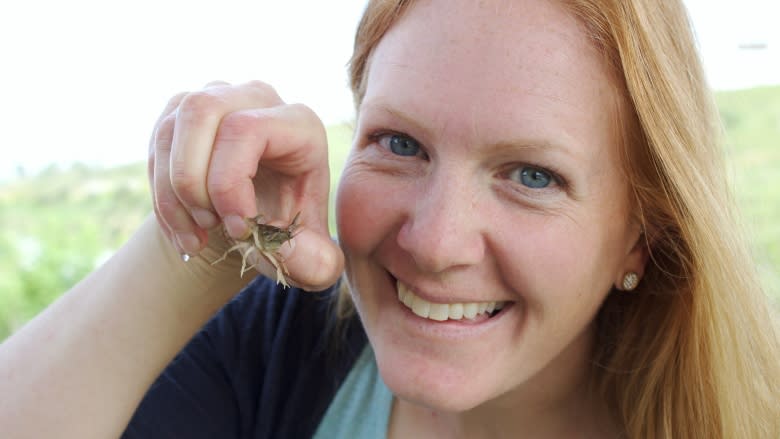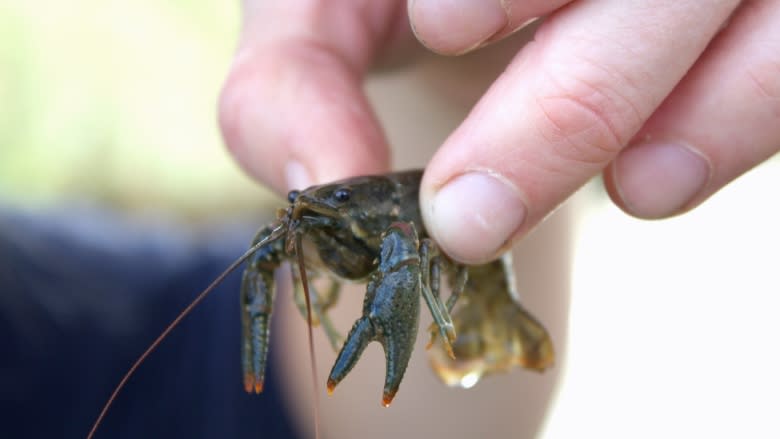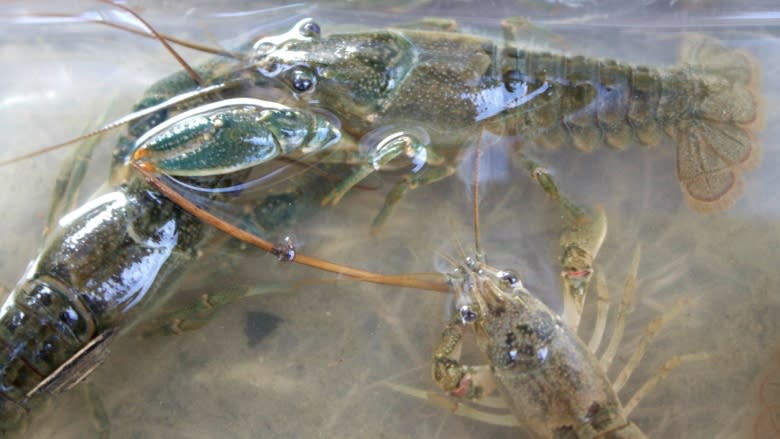Why you may not want to eat Calgary's invasive crayfish
Go ahead and catch them for fun, but you probably don't want to actually eat the crayfish lurking in Calgary's waterways.
At least, not after you find out what they're swimming in.
"When it rains, all the storm water from a lot of these communities basically dumps right into Nose Creek and within not very much time, it gets high and dirty," said Lesley Peterson, provincial biologist with Trout Unlimited Canada.
"So all of this stuff — soap, oil, chemicals, lawn fertilizer, anything that's on the street, lawns or on rooftops ends up in Nose Creek."
The little freshwater lobsters have been breeding like bunnies in the creek, which empties into the Bow River near downtown Calgary.
And according to a recent post on Reddit, that's tempting some city folk to catch them and cook them up.
"I wouldn't do it," said Peterson.
- MORE WILDLIFE NEWS | World's oldest Komodo dragon in captivity dies at Calgary Zoo
- MORE CALGARY NEWS | Butterbeer and golden snitches: Diagon Alley is coming to Calgary
Invasive species
Crayfish do naturally reside in the Beaver River in northern Alberta, but are not native to Calgary — where Peterson said they have become "prolific."
"I don't know that there is a way to control them," Peterson said.
"If you use some sort of chemical, for example, it would likely cause a lot of problems to the rest of the system … It's like once you add cream to coffee, it's pretty hard to remove it. Unless you dump the whole cup out."
While they're not posing any big problems yet, Peterson worries the crayfish could eventually "cause an upset in the natural system."
"It's just, you're putting an extra piece in the puzzle that isn't supposed to be there so the pieces in the food chain that are above and below get kind of thrown out of whack," she said.
Aside from the Beaver River, it is legal to fish for crayfish for personal consumption.
But according to the Alberta's sports fishing regulations — if you're not planning on eating them, you have to kill them before you leave the shore to "prevent the spread" of the species.
"Just squish 'em," said Peterson. "Put them out of their misery."




